As the beloved sci-fi franchise turns 60, it looks towards a new era – led by some familiar faces.
Talking to Jane Tranter before the release of the first of three Doctor Who specials to mark the show’s sixtieth anniversary, there is a sense of, if not nervousness, then anticipation about how the first episode will be received.
The specials, the first of which TXd last Saturday with the rest on the following weekends, mark the start of a new era for the time-travelling sci-fi series. Following a deal with Disney, the iconic BBC show has been contracted out for the first time since its inception in 1963, with Tranter and Julie Gardner’s company Bad Wolf taking the keys to the Tardis. The deal will allow Disney+ to show all episodes of the show outside the UK at the same time as they launch on the BBC, and is thought to have boosted the show’s budget to £100m per series.
Tranter and Gardner are, of course, no strangers to the series – it was Tranter who, as controller of drama at the BBC, brought back the show in 2015 after it had been off air since 1989, with Gardner, then head of drama at BBC Wales as exec producer.
Russell T Davies, who was the head writer and show runner for the first four series after its revival, has also returned.
“I feel hugely confident in it,” Tranter says. “I feel like I did when we re-launched Doctor Who all those years back, which is that I knew what we had made was good, I mean, really good.
“But what you don’t know is whether or not it will light that piece of touchpaper in the way that television drama sometimes can.
“You could make something which is absolutely brilliant, and people agree, but that doesn’t mean that loads and loads of people watch it.”
The specials are off to a strong start – Saturday’s episode, The Star Beast, was the biggest drama launch of the year across all broadcasters, attracting an audience of 5.1m to its 6.30pm BBC 1 slot (Doctor Who’s highest since 2019). It was also widely praised by critics.
As well as being a celebration, Tranter says the specials are designed to serve as “a bridge” between the previous BBC series and the new series, which will star Ncuti Gatwa as the Doctor and will launch on the BBC in the UK and Disney+ in the rest of the world next year, bringing new audiences to the classic British show.
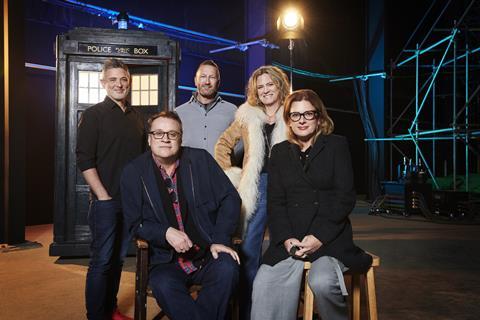
Familiar territory
The three specials start off in familiar territory for fans of the show, with the return of former stars David Tennant and Catherine Tate, picking up on a storyline from 2010. The Star Beast starts with a quick recap before plunging into the action.
“Even if you start mid-story, it’s still a good story,” Davies says. “The first one is like a big family film – Pixar could transmit that. The second one is weird and scary and strange and unnerving and places. It’s visually unnerving and I think will freak some people out – it’s brand new territory.”
The third will involve a guest appearance from Neil Patrick Harris, who, Davies says “just blows the doors off all convention – it’s a wild ride and we throw everything at that one”.
A Christmas special episode, broadcast on Christmas day, will be the first helmed by Gatwa.
The appearance of Neil Patrick Harris is one of the advantages of the deal with Disney, which Davies describes as “unashamedly an attempt to increase budgets”.
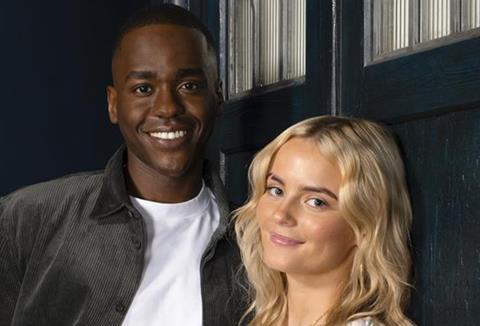
“Let’s face it, in the old days, we couldn’t have afforded that,” Davies says. “Now we’re bringing a huge star and presence and talent to the show, lifting the game, and everyone has to match his performance, so it’s a kind of great collision, it’s been absolutely fantastic.”
The cash injection is also visible on screen – not least in the eponymous star beast, the wide-eyed computer-generated giant bush baby known as The Meep. Executive producer and veteran designer Joel Collins says Disney’s involvement allowed him to hire Phil Sims, a production designer whose credits include films in the Marvel and Star Wars franchises, as well as the last two Mission: Impossible films.
“I encouraged him in just saying that we had no choice but to lift this up to the standards of the kind of work he already does,” Collins says. “And that’s a tall order, if you’re looking at British television as a whole.”
The relationship with Disney has been “great and surprisingly straightforward”, Davies says.
“You’re teaming up with a streamer that loves its properties, that respects its franchises,” he says. “Look at their Marvel and Star Wars shows – the key to their shows and how faithful they are to a fanbase and how imaginative they are.”
And despite the involvement of one of the world’s largest entertainment platforms, with the return of Tranter, Gardner, Davies and producer Phil Collinson, there is a sense of getting the band back together (although Tranter insists they won’t just be playing the old hits).
British sensibilities
Both Davies and Collins are adamant that the show will stay true to its British sensibilities, despite the wider global audience.
“Nowadays global audiences are used to watching British shows,” Collins says. “British shows used to have to adjust, or they got lucky. But right now, international shows seem to become successful when they stay true to their nationality. So Russell’s not really adjusting the tone of the show, it’s more the execution.”
Tranter says it’s also about “expanding the production values”.
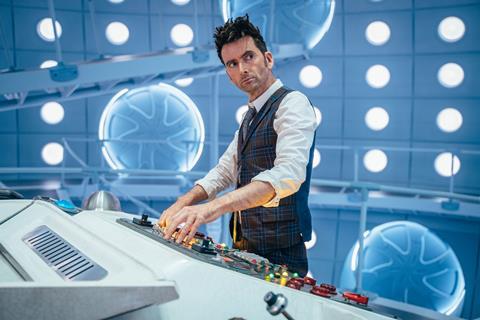
“We’re having a look at the show alongside some of those big franchises that have a very strong international footprint,” she says. “And what we’re hoping we’ve done is to make it in Wales, but for a big global audience – whereas I think previously it’s been made in Wales for a UK audience with some international fans, and that’s slightly different.”
Taking on a show with a huge and longstanding fan does come with a certain level of pressure, but Tranter says the team tries not to become too concerned with it.
“You don’t make the show for the fans, you make a show that you know fans will love,” she says. “So by that I mean you don’t make a show that is constantly reacting to fans saying ‘Go left a bit, right a bit’ or whatever. You have to be able to make the show that you believe in.”
And ultimately, she says: “We have to make a show that we feel is right for Doctor Who in 2023, and beyond that, we’ve been tasked with making Doctor Who fit for purpose in the new television landscape.”
Gardner agrees, adding that the landscape looks very different from 2005, when the show was something of a “plucky underdog”.
“We’re in a world where expectation is greater,” she says. “We’ve had an explosion of high-end television, high end fantasy or high concept pieces.
“[In 2005] it was very hard to bring some HoDs and directors to the show, because no one quite believed it would be possible as the show had been off the air for so long – and it was being talked about in a light entertainment way rather than as a full-blooded drama.
“Now, the expectations and therefore the demands are great. But we’re still trying to make a beautiful show that brings in a wide audience and unites a family.”
Collinson says: “Practically, for me, making Doctor Who at this level is it much more difficult than it was – when we did it before, we were making the show for not very much money, under duress, really trying to prove ourselves and the worth of the show.”
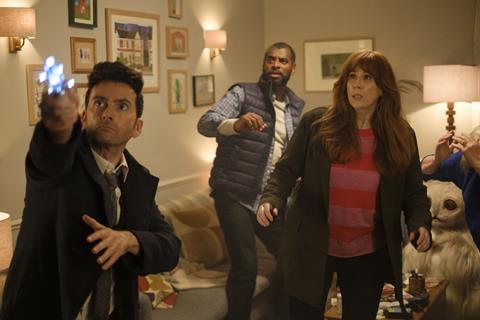
Now, says the producer, the team is working with sets that take months to build and because of the nature of the show, might only be used in one episode, and has a much longer post-period – the team is still locking VFX for this year’s Christmas special, which was filmed 14 months ago.
Collins agrees: “We’re eager to give Russell’s writing the kind of elevation in every area and a consistency in the way we produce the show. It’s very easy on shows this complicated to be inconsistent with what you deliver – you end up investing so much in one area that you drop off in another.”
The executive producer and veteran creature designer adds that “for that, this show is unlike any other show ever made – there are so many elements that make our lives hard in production. But that’s also the beauty of the show”.
The ‘Whoniverse’
The move to Bad Wolf and Disney has also brought with it the concept of the ‘Whoniverse’ – an umbrella brand for the show and its associated spinoffs, of which there could be more in the future.
“It’s two things – one it’s a place where audiences can find everything Doctor Who-related across the 60 years, in one place that is easy to navigate,” Gardner says. This will include old episodes, behind the scenes material and information about concerts showcasing the series’ music.
“The second thing is, since 2005 as well as Doctor Who we’ve had Torchwood and The Sarah Jane adventures, and looking to the future, Russell has other programming ideas that he wants to realise within the universe,” she says. “So it will become the place where new material outside of Doctor Who also sits.”
And Davies points out that while bringing new fans to a show with so much history and lore as well as satisfying new fans might be challenging, it’s exactly what the team did in 2005 – and with the internet and resources like the Whoniverse page on iPlayer, those with questions will be able to get answers quickly.
For Gardner, now feels like the right time to introduce Doctor Who to a bigger audience.
“I’m just so happy that we’re doing this,” she says. “It’s hard work. And but the show now in 2023 is fundamentally the same in how it’s made - it’s made with heart and love, and intelligence and ambition just like it was back in 2005 and it’s just very exciting.
“The world is very dark right now, and I think audiences need the joy and the excitement and the adventure and the hope of this show – I know I do.”
This feature is supported by







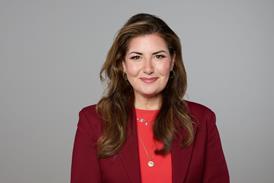
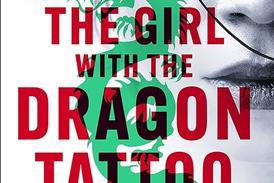

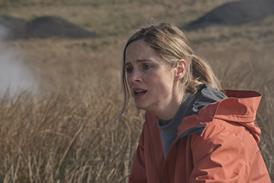

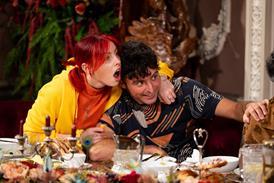







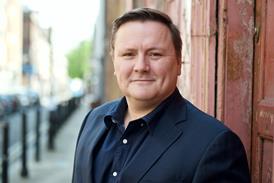
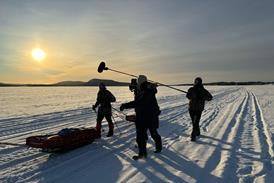
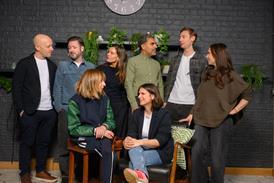
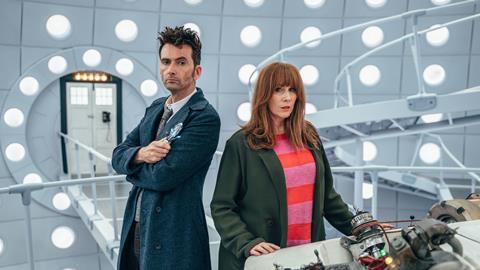









No comments yet